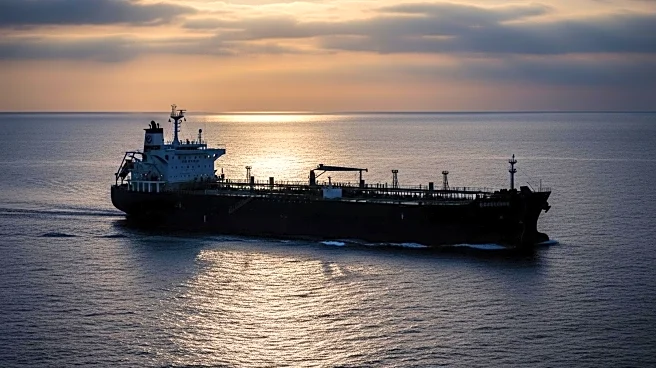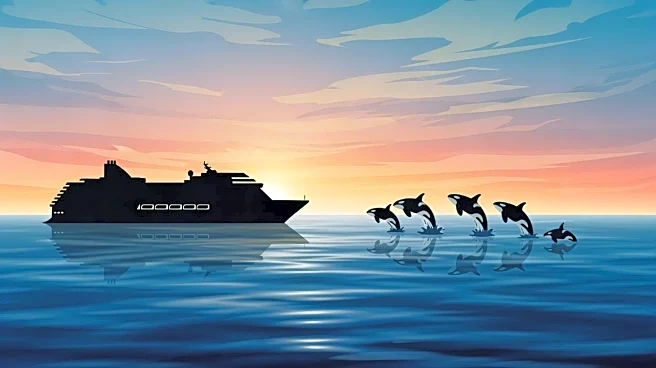What is the story about?
What's Happening?
French authorities have charged the captain of an oil tanker, believed to be part of Russia's 'shadow fleet,' with refusing to comply with naval orders and failing to justify the nationality of the ship's flag. The tanker, named Boracay, is currently registered in Benin but has changed its name and flag multiple times in recent years, allegedly to evade sanctions imposed on Russian oil exports. The vessel was boarded by French soldiers earlier this week as it was on a list of vessels subject to EU sanctions. The captain, a Chinese national, was detained and charged, while the second captain was released without charge. The Boracay is now anchored near the port of Saint-Nazaire, France. The incident is part of broader efforts by Western countries to limit Russian energy imports in response to the war in Ukraine.
Why It's Important?
The charges against the captain of the Boracay highlight ongoing international efforts to enforce sanctions against Russia, particularly in the energy sector. These sanctions are part of a broader strategy to pressure Russia economically due to its actions in Ukraine. The existence of a 'shadow fleet' suggests that Russia is actively seeking ways to circumvent these sanctions, which could undermine their effectiveness. The situation also raises questions about maritime security and the enforcement of international law, as countries like France take steps to ensure compliance with sanctions. The incident could lead to increased scrutiny of maritime activities and further diplomatic tensions between Russia and Western nations.
What's Next?
The captain is scheduled to attend a court hearing in Brest, France, next February. This legal proceeding could set a precedent for how similar cases are handled in the future, potentially influencing international maritime law enforcement. Additionally, the unresolved question of whether the tanker was involved in a recent drone incursion into Danish airspace may lead to further investigations. As Western countries continue to enforce sanctions, Russia may seek new methods to export its oil, potentially leading to more confrontations at sea. The situation may also prompt discussions at international forums about strengthening maritime security and sanctions enforcement.
Beyond the Headlines
The incident with the Boracay tanker underscores the complexities of enforcing international sanctions and the lengths to which countries may go to evade them. It highlights the challenges faced by nations in maintaining the integrity of sanctions regimes, especially when dealing with sophisticated networks designed to obscure ownership and movements of vessels. The case also raises ethical questions about the responsibilities of countries that register these vessels and the potential complicity in sanctions evasion. Long-term, this could lead to changes in international maritime regulations and increased cooperation among nations to address these issues.















